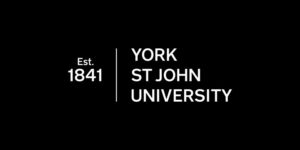By Marta Matosek.
Business and management is the most popular subject studied by international students arriving in the UK. According to HESA (2023), almost 37% of all “non-UK domiciled” students chose this discipline in 2021-22. As British universities increasingly rely on growing international student numbers to fill the funding gap (PwC, 2024), are we also responding to curriculum needs of this cohort?
At York St John University where I teach, nearly 70% of postgraduate students are international (2024). In 2022, I was invited to create content for a brand new programme, MSc in International Project Management at York St John’s London Business and Health School. As I initially stared at a blank PowerPoint slide, I kept asking myself: how do I develop a curriculum that is authentic, contemporary and inclusive for an international cohort?
Luckily, I found that business techniques came in handy during the very process of curriculum development.
Start with market research
When starting any business venture, it is a good practice to conduct market research: to understand the competition and how we can differentiate our offer. As I scanned project management curricula at British universities and postgraduate-level project management handbooks, I identified two gaps.
First, the project management curriculum was often mono-sectoral, typically reflecting the unique expertise of its content creator or the specialist focus of a given faculty (construction, manufacturing etc.). Yet, the McKinsey Report (2022) suggests that industry hopping is now the norm: as many as 48% of those who quit their job in the past two years reported having moved to a different sector.
Second, business and project management textbooks – even those with an “international” orientation – feature predominantly British or Western businesses and brands – or, at best, those of other advanced economies such as Japan and South Korea. Notably, African projects and business case studies are almost entirely absent. Consider, then, that in 2023, China, India and Nigeria were the countries of origin for majority of international students arriving in the UK (Study in the UK, 2023). The message was clear: concepts and case studies from a larger variety of industries, specialisms and geographies needed to be included in the curriculum.
Know thy student
To design an authentic curriculum for York St John’s students, however, I needed to go a step further and understand this university’s particular cohort.
A quick look at York St John’s London recruitment forecasts gave me a good sense of where the majority of students would be coming from. I made sure I included several case studies from these countries and regions in module content. In addition, during the introductory lecture, I ran an interactive ice-breaker poll asking students about their interests – i.e. the industries and/or geographic regions they would like to see featured.
Qualitative feedback from the sessions was indicative, too. While some media establishments and politicians lament that an inclusive curriculum will mean “a reduction of other core content” (Daily Mail, 2022), sessions with my students seemed to prove the opposite: an expanded curriculum allowed them to relate better to acquired knowledge and theory.
Yes, students wanted to understand trends and challenges facing major global and British brands, for example Starbucks and Apple, or M&S and Tesco. At the same time, some of the liveliest discussions we had related to business developments in their home countries, be it recent Fintech innovations in Nigeria or impact of China’s Belt and Road Initiative on the economy or environment in Sri Lanka, Nepal or Pakistan.
What’s next – continuous improvement and academic curiosity
Agility and continuous improvement might be overused buzzwords in business speak, but they remind us about volatility of our current times and the importance of adapting to change as individuals, teams and organisations.
I’m sure most of us would agree with the WonkHe/Adobe (2023) recommendations that building change capacity into the business curriculum is necessary to keep it future-proof. But, this process relies on buy-in and action from a wider group of academics. Culture wars don’t help to shift the dial. And, arguably, neither does the term “decolonising the curriculum”, as it pits academics against each other by framing it as a zero-sum game between those who seek change and those who wish to preserve certain content. Would it be more constructive if we shifted the debate from decolonising to future-proofing the curriculum?
It is often said that a good university curriculum affords students intellectual “stretch” and “challenge”. Perhaps we academics could also stretch ourselves beyond what is most familiar to us and explore industries and businesses we have less knowledge of, but which might be interesting and relevant to our students. In the process, we might also happen to learn a thing or two – and improve the currency of our curriculum content.
References
- Daily Mail (2022). Campus wokery on the march: Mail investigation reveals how universities are ‘decolonising’ courses to mollify activists – with Oxbridge colleges increasing ‘race workshops’. News. Available at: https://www.dailymail.co.uk/news/article-11297237/Campus-wokery-march-Universities-decolonising-courses-mollify-activists.html
- HESA (2023). Higher Education Student Data 2021/2022. Available at: https://www.hesa.ac.uk/news/31-01-2023/higher-education-student-data-202122#:~:text=At%20postgraduate%20level%20the%20number,studying%20Business%20and%20management%20subjects.
- McKinsey (2022). The Great Attrition is making hiring harder. Are you searching the right talent pools? Report. Available at: https://www.mckinsey.com/capabilities/people-and-organizational-performance/our-insights/the-great-attrition-is-making-hiring-harder-are-you-searching-the-right-talent-pools
- York St John (2024). Diversity Monitoring. Available at: https://www.yorksj.ac.uk/policies-and-documents/diversity-monitoring/
- PwC (2024). Financial sustainability of the Uk Higher Education sector, January 2024. Available at: https://www.pwc.co.uk/industries/government-public-sector/education/financial-sustainability-of-uk-higher-education-sector.html
- Study in the UK (2023). International Student Statistics in UK 2023. Online blog. https://www.studying-in-uk.org/international-student-statistics-in-uk/#:~:text=According%20to%20the%202021%2F22,international%20students%20study%20Computing%20programs.
- UCAS (2022). The UK continues to be a top destination for study, with applications set to rise by almost 50% within five years. Press release available at: https://www.ucas.com/corporate/news-and-key-documents/news/uk-continues-be-top-destination-study-applications-set-rise-almost-50-within-five-years
- WonkHE & Adobe (2023). Future-proofing the curriculum for students and university success. Available at: https://wonkhe.com/wp-content/wonkhe-uploads/2023/07/Future-proofing-the-curriculum-for-success.pdf

Marta Matosek is a business lecturer at York St John University (London) and a project manager at King’s College London.
